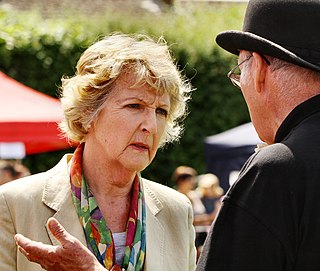A Quote by David Crystal
People say that text messaging is a new language and that people are filling texts with abbreviations - but when you actually analyse it, you find they're not.
Quote Topics
Related Quotes
Literature can no longer be either Mimesis or Mathesis but merely Semiosis, the adventure of what is impossible to language, in a word: Text (it is wrong to say that the notion of 'text' repeats the notion of 'literature': literature represents a finite world, the text figures the infinite of language).
Many liberals believe in God; many conservatives do. What matters is not whether people believe in God but what text, if any, they believe to be divine. Those who believe that He has spoken through a given text will generally think differently from those who believe that no text is divine. Such people will usually get their values from other texts, or more likely from their conscience and heart.
I like to be challenged with language, so I start to do texts for my blogs that people can download, can spread. There is no commercial interest behind it. It's only for fun, like doing something that you really enjoy to do. I have texts that I write specifically for the internet and I put them there. I am interested in how readers also respond to the texts that I write to them.
So we start with an oversignifying reader. Those texts that appear to reward this reader for this additional investment - text that we find exceptionally suggestive, apposite, or musical - are usually adjudged to be 'poetic'. ... The work of the poet is to contribute a text that will firstly invite such a reading; and secondly reward such a reading.



































